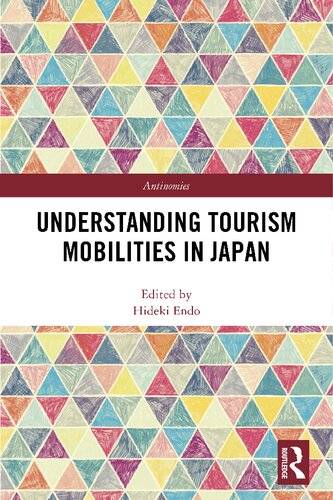

Most ebook files are in PDF format, so you can easily read them using various software such as Foxit Reader or directly on the Google Chrome browser.
Some ebook files are released by publishers in other formats such as .awz, .mobi, .epub, .fb2, etc. You may need to install specific software to read these formats on mobile/PC, such as Calibre.
Please read the tutorial at this link. https://ebooknice.com/page/post?id=faq
We offer FREE conversion to the popular formats you request; however, this may take some time. Therefore, right after payment, please email us, and we will try to provide the service as quickly as possible.
For some exceptional file formats or broken links (if any), please refrain from opening any disputes. Instead, email us first, and we will try to assist within a maximum of 6 hours.
EbookNice Team

Status:
Available4.7
19 reviewsThe total number of foreign tourists received in countries throughout the world was 530 million in 1995. That number broke through the 1 billion mark for the first time in 2012, at 1,035,000,000. In 2015, it reached 1,180,000,000. According to Anthony Elliott and John Urry, modern society has been characterized as being "mobile", and within that we are also living "mobile lives".
In modern society, flows of people, things, capital, information, ideas and technologies are constantly occurring, and as they are merging like a violently rushing stream, what could be termed a landscape of mobilities has appeared. Social realities are in flux and are transforming to become different than they were before. This volume will expand the inquiry of tourism mobilities comprehensively and clearly from the fields of humanities and social sciences. In particular, tourism mobilities has been actively investigated up to now in the UK, US, Europe and Australia, but even though the Japanese body of literature contains a great many excellent studies of Japanese examples, there are almost no English-language articles presenting their results.
Publishing examples of Japanese tourism mobilities will not only foster new and exciting lines of inquiry for existing and future research on tourism mobilities, but will also have implications for humanities and social sciences throughout the world.